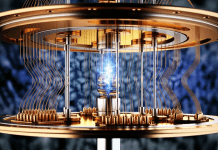In legal developments concerning former President Donald Trump, a New York judge has postponed his sentencing until September as his legal team challenges a conviction related to hush-money payments, following a significant Supreme Court ruling. Originally scheduled for July 11th, Trump’s sentencing has been deferred pending a decision on motions aimed at overturning his conviction.
The case in question revolves around allegations that Trump orchestrated payments to adult film star Stormy Daniels to secure her silence about an alleged 2006 affair. These payments, managed through Trump’s former lawyer Michael Cohen, were disguised as legal expenses, occurring just before the 2016 presidential election. The jury’s verdict in May found Trump guilty of multiple felony counts, marking him as the first former U.S. president convicted of a felony.
Central to the delay in sentencing is a recent Supreme Court ruling asserting that former presidents enjoy partial immunity for “official” acts performed during their presidency. This decision emerged from a separate case where Trump faced accusations of attempting to overturn the results of the 2020 election. Trump’s legal team swiftly sought to leverage this ruling to challenge his conviction in the hush-money case, arguing that some of the actions and evidence cited occurred during his tenure as president.
Justice Juan Merchan, presiding over the case in New York, indicated that a decision on these motions would be forthcoming by September 6th. If the challenge fails and sentencing is necessary, it is tentatively scheduled for September 18th. Trump responded to the delay through social media, declaring it as “TOTAL EXONERATION!” and suggesting it marked an end to what he characterized as “witch hunts” against him.
Legal experts, however, caution that Trump’s immunity defense may face substantial hurdles in the New York case. Mark Zauderer, an appellate attorney, pointed out that the fraudulent activities for which Trump was convicted appear unrelated to his official duties as president. Philip Bobbitt, a constitutional law scholar, echoed this sentiment, noting the difficulty in arguing that the payments to Daniels and subsequent cover-up constituted official presidential acts.
The prosecution, led by the Manhattan District Attorney’s Office, rebutted Trump’s defense, asserting that the Supreme Court ruling does not apply in this context and labeling his arguments as “without merit.” They have requested until July 24th to file their response to Trump’s motions. Despite Trump’s optimism, legal analysts suggest that successfully invoking presidential immunity in this case would be an uphill battle.
The broader implications of these legal proceedings are significant, not only for Trump but also for the precedent they may set regarding the legal scrutiny of presidential conduct both during and after a president’s tenure. The Supreme Court’s recent ruling has sparked debate over the extent of presidential immunity, particularly in cases involving private conduct with alleged criminal implications.
This delay in Trump’s sentencing underscores the complexity and contentious nature of legal battles involving a former president. It also highlights the meticulous process through which the judicial system navigates the intersection of law, presidential authority, and public accountability.
The legal saga unfolds, all eyes will remain on the New York courtroom where Trump’s fate hangs in the balance. Whether his conviction will stand, be overturned, or lead to further legal maneuvers remains uncertain. What is clear is that the outcome will have far-reaching implications for both Trump’s personal legal battles and the broader implications for presidential accountability in American jurisprudence.























